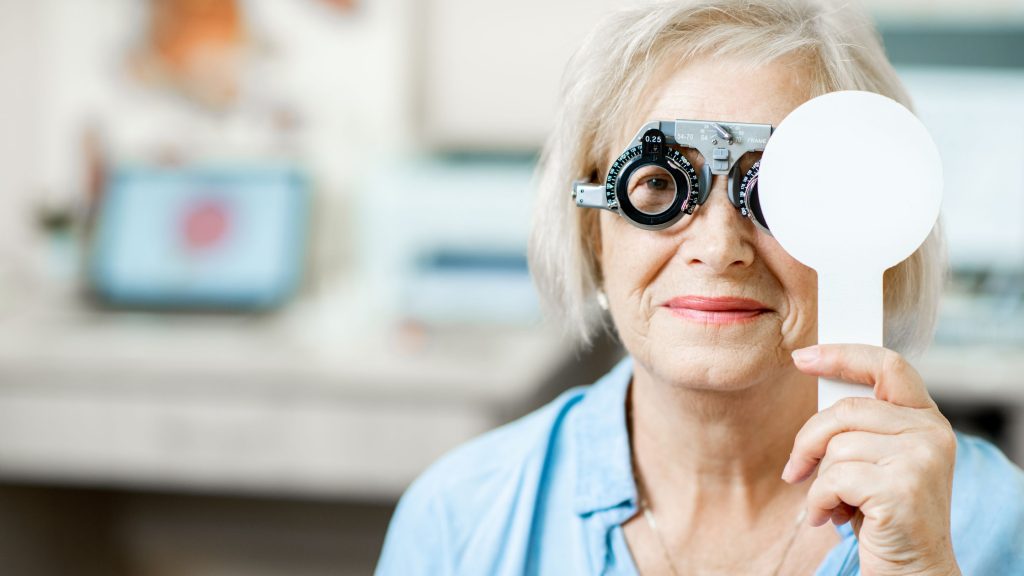As we grow older, our bodies undergo a myriad of changes, and our eyes are no exception. Sudden shifts in vision are a natural part of this process. Recognizing the common eye conditions associated with aging can help us better prepare and look after our vision over time.
In this blog, we will explore the most typical age-related vision changes and offer tips on maintaining excellent eye health as you age.
Common Age-Related Vision Changes
Presbyopia
Presbyopia typically starts to affect individuals over the age of 40. It is caused by the hardening of the eye’s lens, making it difficult to focus on close objects. Symptoms include trouble reading small print, eye strain, and headaches. Fortunately, this condition can be managed with the use of reading glasses, bifocals, or progressive lenses.
Cataracts
Cataracts are another common condition that comes with aging. They cause cloudy lenses, leading to blurred vision, sensitivity to light, and difficulty seeing at night. The primary treatment for cataracts is surgery, where the cloudy lens is replaced with an artificial one. Regular eye exams are critical for early detection and to mitigate severe vision problems.
Age-Related Macular Degeneration (AMD)
AMD affects the macula, the center part of the retina, and is a leading cause of vision loss among people over 50. Symptoms include blurred or distorted vision, trouble seeing in low light, and blind spots in the central visual field. Although there is no cure for AMD, early detection and treatment can slow its progression and help maintain vision.
Glaucoma
Glaucoma encompasses various conditions that damage the optic nerve, leading to vision loss. Often called the “silent thief of sight,” it can progress without noticeable symptoms until substantial vision loss occurs. Regular eye exams are crucial for early detection and treatment, which may include eye drops, medication, or surgery.
Diabetic Retinopathy
Diabetic retinopathy primarily affects individuals with diabetes. High blood sugar levels can damage the blood vessels in the retina, causing vision loss. Symptoms include blurry vision, floaters, and difficulties in seeing at night. Managing blood sugar levels and having regular eye exams are key to preventing and controlling this condition.
Tips for Caring for Aging Eyes
Here are some essential tips for maintaining clear vision as you age:
- Regular Eye Exams
Regular check-ups are vital for sustaining optimal eye health. Early detection of vision issues can prevent them from worsening. It’s recommended to have an eye exam every 1-2 years, especially if you have a family history of eye conditions or health issues like diabetes.
- Protect Your Eyes from UV Rays
UV rays can damage your eyes and contribute to conditions like cataracts and macular degeneration. Always wear sunglasses with 100% UV protection when outdoors. Additionally, a wide-brimmed hat can provide extra protection from the sun.
- Maintain a Healthy Diet
Eating a balanced diet is crucial for maintaining eye health. Foods rich in antioxidants, vitamins A, C, and E, and omega-3 fatty acids can help prevent age-related vision issues. Add leafy greens, fish, nuts, and citrus fruits to your diet.
- Quit Smoking
Smoking negatively impacts overall health, including your eyes. It increases the risk of cataracts, macular degeneration, and other eye problems. Quitting smoking can significantly reduce your risk of vision-related issues and boost your general health.
- Check Medications for Vision Side Effects
Some medications, such as Accutane, can cause vision changes. It’s important to discuss potential side effects with your doctor and schedule regular eye exams to monitor any alterations in vision.
- Stay Physically Active
Exercise benefits not only your body but also your eyes. It improves blood flow to the eyes, reducing the risk of glaucoma and macular degeneration. Regular physical activity also helps control diabetes, which can adversely affect eye health.
Conclusion
Maintaining good eye health as we age entails regular eye exams, protecting our eyes from UV rays, eating a nutritious diet, and staying active. By following these guidelines, we can prevent or manage age-related vision changes and preserve our eyesight for many years to come.
